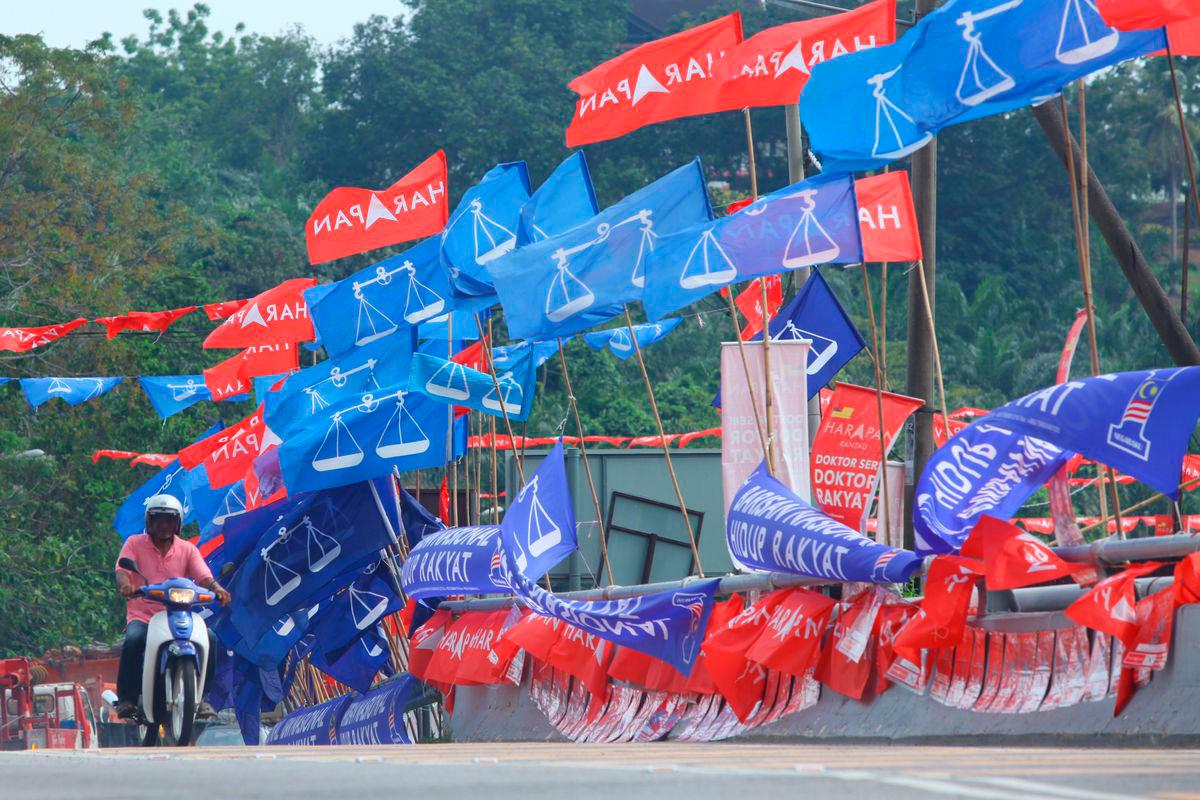PETALING JAYA: The alliance between Pakatan Harapan (PH) and Barisan Nasional (BN) in the coming 16th General Election (GE16) could deliver an extra 52 Malay-majority parliamentary seats, but only if both blocs avoid clashing with each other and take on Perikatan Nasional (PN) in straight fights.
Amanah deputy president Datuk Seri Dr Mujahid Yusof Rawa said this projection was based on the GE15 results, when all three major coalitions contested separately.
“A recent study suggests that, on paper, PH and BN could reclaim around 52 parliamentary seats lost to PN – provided seat negotiations are done strategically and multi-cornered fights are avoided,” he told theSun.
“These are primarily in Malay-majority constituencies.”
Mujahid added that DAP, a key component of PH, has already reached its ceiling in terms of winnable seats.
“DAP is saturated. They’ve hit their peak. The contest in GE16 will largely be fought by Malay-based parties. That’s where the real opportunity lies to deliver a more stable government.”
He stressed that if PH and BN – particularly components PKR, Amanah and Umno – can avoid internal clashes and present a united front, their chances of reclaiming seats from PN rise significantly.
“This isn’t just about electoral gains. It’s about political stability and forming a government that can last and govern effectively.”
Mujahid said the strategy depends on smart cooperation, respect for grassroots realities and putting national interest ahead of partisan ego.
“The people want an effective government, not endless turmoil. The Malay-majority seats lost to PN can become the battleground for that change.”
He also pointed out that under Malaysia’s first-past-the-post system (winner-take-all system), avoiding three-cornered fights is critical.
“That’s why we need a pact. Seat distribution must involve give and take – that’s what makes this coalition unique.”
Mujahid noted that unlike past pre-election coalitions, the current PH-BN alliance was born after GE15 because no single bloc could form a government on its own. The challenge now, he said, is to formalise a formula that preserves this cooperation.
The biggest test, however, lies in deciding who contests where, particularly in marginal or previously Pas-held constituencies such as Parit Buntar.
“First, there must be consensus on who defends existing seats. For those we aim to recapture from PN, we need to look at past performance – whether PH or BN placed second.”
In Gerik, Perak, where BN came in second, Mujahid said logic would suggest giving BN the chance to contest again, “but relying only on past results has its pitfalls, especially in competitive states like Perak”.
“There will have to be adjustments and swaps based on mutual agreement to maintain harmony,” he added.









